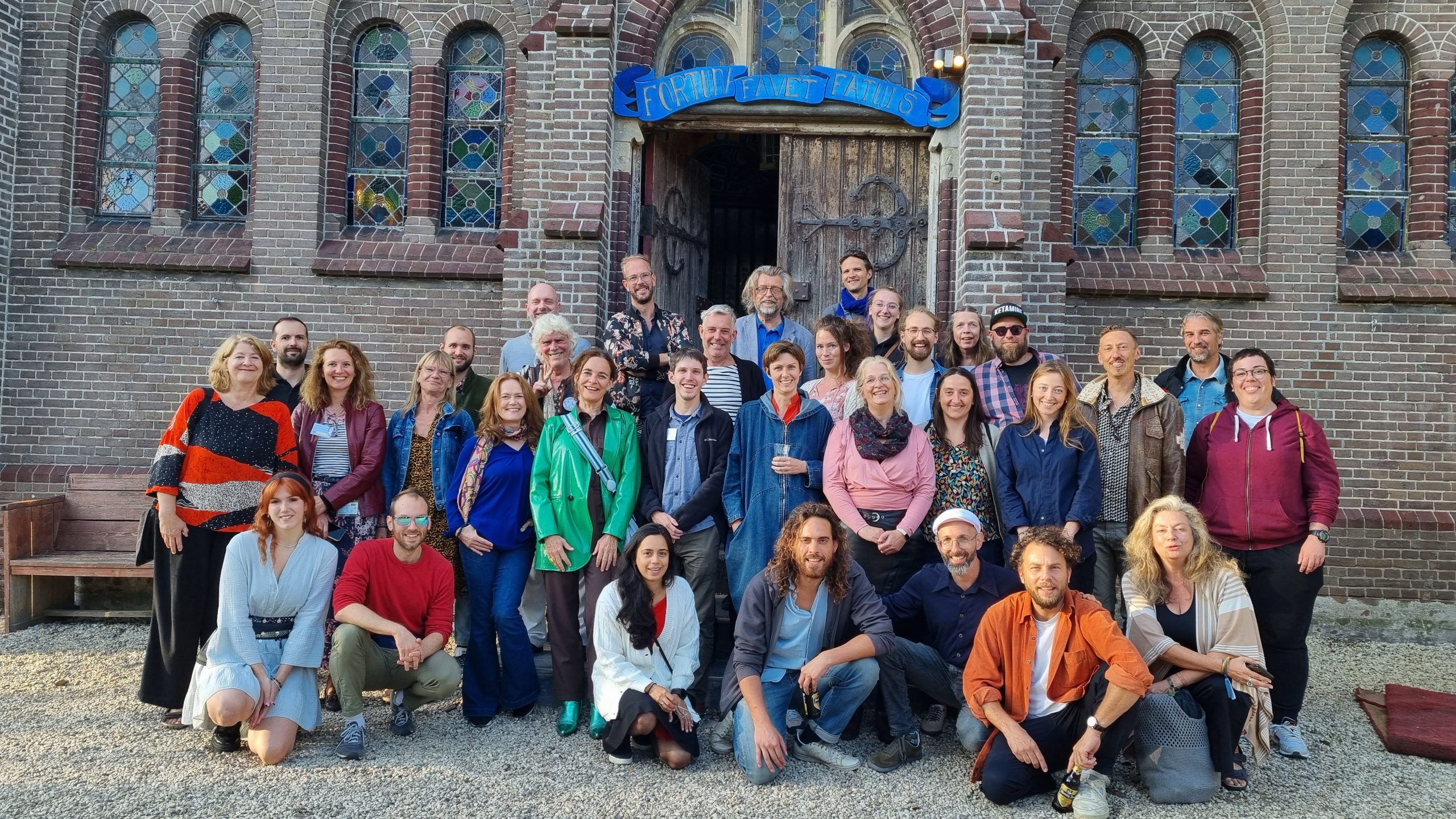Set and Setting in Psychedelic Use
During the last week of August, the Lorentz centre at the University of Leiden hosted the Substance, Set and Setting workshop. Initiated by the Open Foundation and generously supported by the Netherlands Research Foundation (NWO) and the Improbability Foundation, more than fifty researchers and practitioners from the field of psychedelic science and therapy convened for five intensive days to discuss the entanglement of substance, set and setting. The aim of the workshop was to create new research models and guidelines to further our understanding of how non-pharmacological factors affect the psychedelic experience. To this end we used innovative and interdisciplinary research ideas and methods, and we established interactive discussions between scientist, therapists and other practitioners (e.g., organizers of retreats). The workshop brought together leading international researchers and experts from different disciplinary backgrounds to foster an exchange of ideas and best practices about whether and how set and setting can be used to ‘engineer the psychedelic experience’ and to develop best practices (e.g., related to harm minimization). The participants also attempted to integrate academic and experienced experts’ knowledge about the use of psychedelics that already exists in medical, religious, and other non-medical settings.
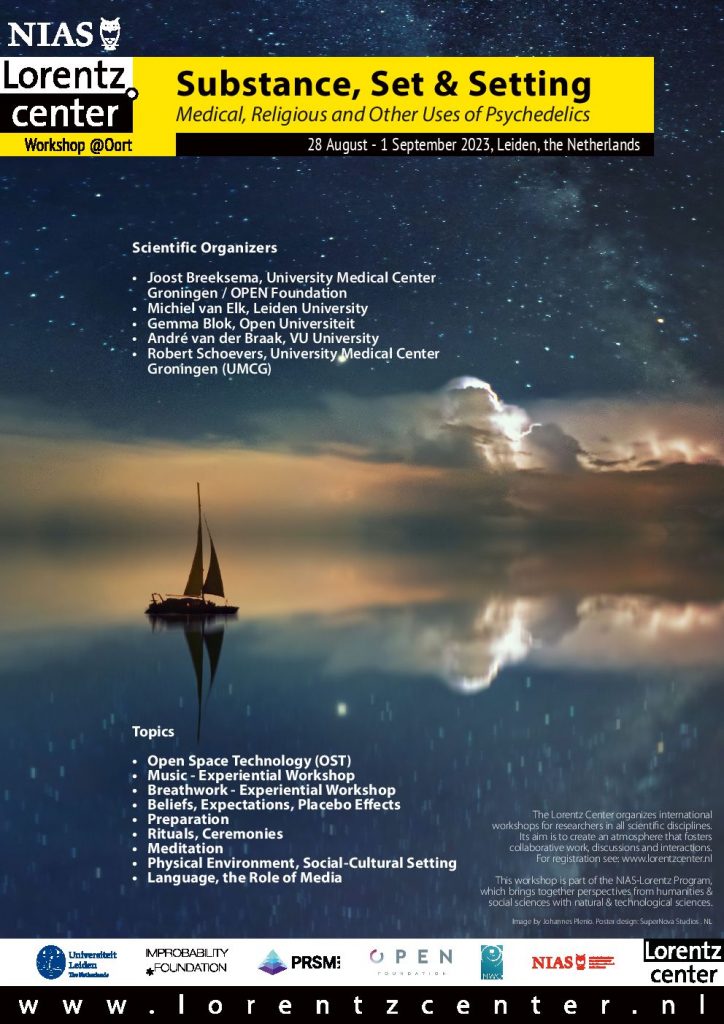
Open Space Technology
To encourage an active engagement between researchers from different disciplinary backgrounds (a variety of (medical) sciences, social sciences and humanities), practitioners (such as place holders, ceremony leaders, psychologists) and harm reduction and addiction and substance abuse experts, the workshop used the format of Open Space Technology. In spite of its high tech name this technique provides a pleasantly analogue and hands-on way to collect ideas, to select and focus and to collaborate in interdisciplinary teams on the agenda that was by and large determined by the participants. It was quite amazing to see how an empty wall for ideas and topics, soon transformed into a beehive of themes to discuss and evaluate. In breakout rooms these topics were discussed, according to the principle that it is okay to hop from one room to the next like bumble bees who can cross pollinate or like butterflies who can more silently absorb and transmit information at a later stage. The outcomes were synthesized using the reporting sheets from each discussion group, that were made available to all participants after the workshop.
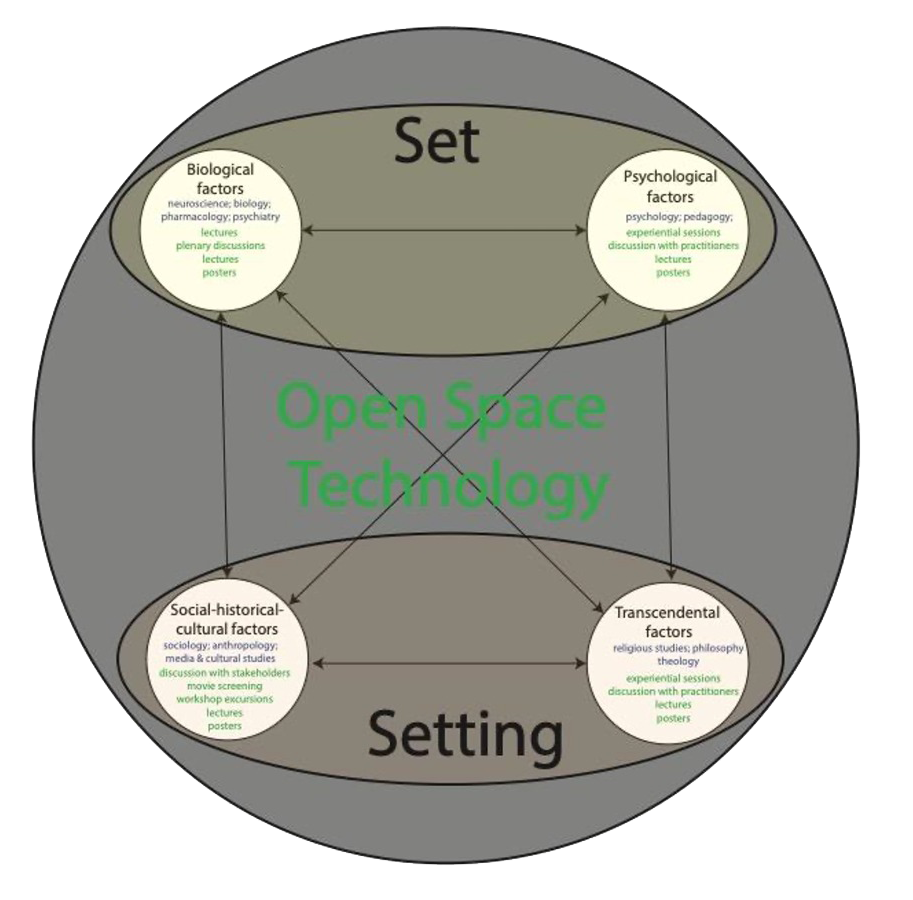
Everything Else Matters: Film, Experiential Workshops, the Sea and Ruigoord
The workshop also included some plenary moments, such as the presentation of the findings from the Delphi study on setting conducted by the Centre for Psychedelic Research at Imperial College in London by Chloe Provoost-Morgan and Leor Roseman. We also engaged in a presentation of the work-in-progress of the documentary on set and setting Everything Else Matters, a film co-commissioned by the OPEN foundation.Directors Kristina Kulakova, and producer Dmitry Repin presented and discussed excerpts from the film, interviewed several participants and actively worked on the film that will be presented at ICPR 2024. Ido Hartogsohn, assistant professor at Bar-Ilan University, gave a passionate keynote lecture, in which he proposed to extend the notion of set and setting to include the socio-historical context in which psychedelic experiences take place as well. Harm reduction specialist from the Dutch Jelinek and Trimbos institute shared their view and knowledge on harm reduction and several scientists presented their research and experiences either in smaller groups or on posters.
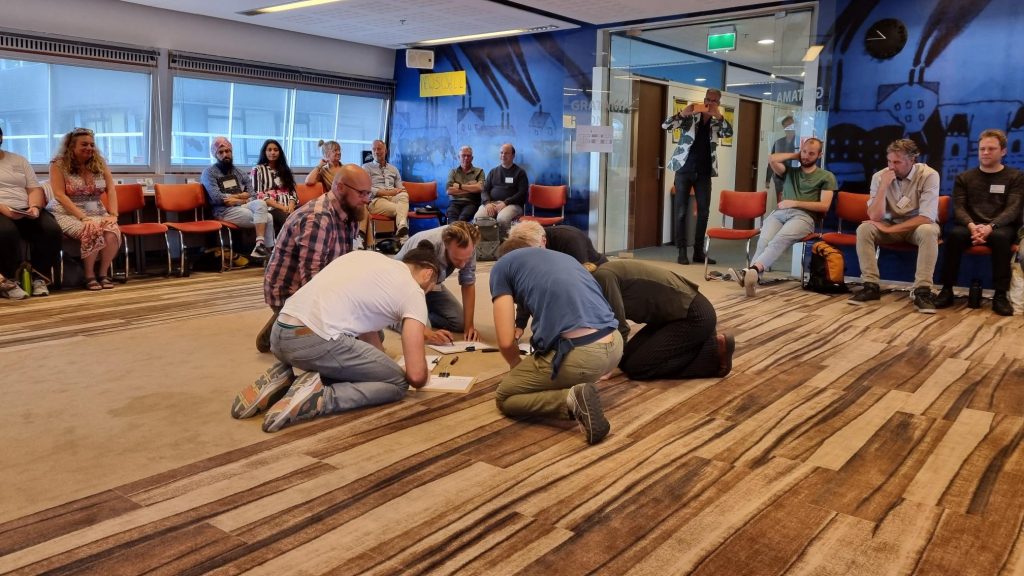
Over the course of the week the empty offices at the Lorentz Institute started to be taken over by buzzing sounds, passionate exchanges of ideas, but also music and movements in space. In the meantime, in several experiential workshops the idea of set and setting was put into practice: this opened up new dimensions: a breath work workshop by Katrien Franken moved participants deeply; a music workshop by Arno Adelaars and Jan Frank transformed the university room into a ceremonial space and invited participants to improvise music during breaks; Rini Hartman gave a taste of a Sante Daimo set and setting; and Andre van der Braak demonstrated different meditation techniques. All these experiences were not only important demonstrations of set and setting but contributed to the exchange and development of new ideas on set and setting.
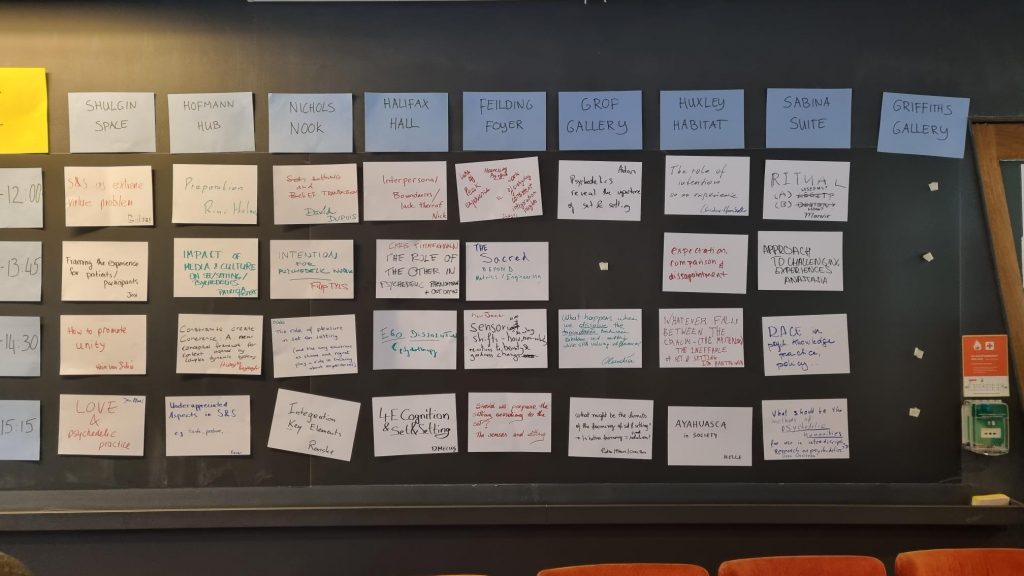
These experiential events are at least as important as the formal research and academic discussion on set and setting. Also the evening program included an experiential element. We watched a screening of Maartje Nevejans’ beautiful documentary Descending the Mountain, documenting the story of a psychedelic scientist and a Buddhist monk who develop a lifelong friendship, which was followed by a Q&A with the director. We enjoyed a barbecue at the Dutch seaside that invited several participants to a spontaneous dive into the cool and dark water of the North Sea. On Thursday evening the group made a visit to the unique cultural green village (hidden in the Amsterdam Harbor) Ruigoord with a guided tour by one of its founders, Hans Plomp.
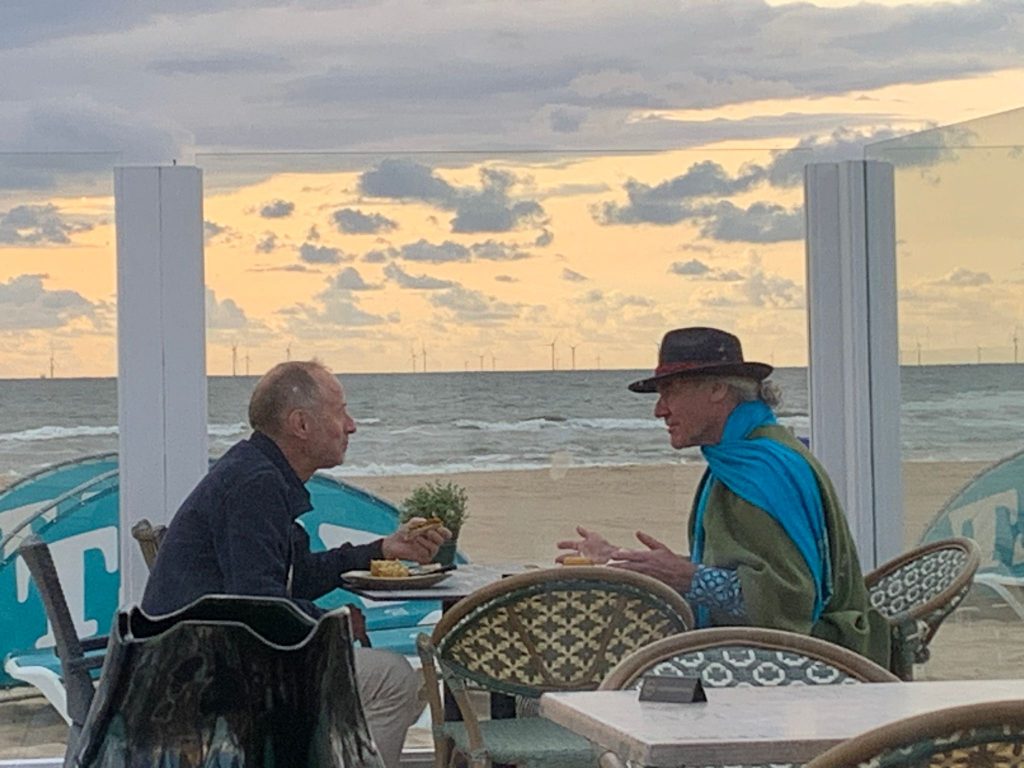
And Now? Concrete Outcomes and follow-up
Throughout the week different groups started to work on different concrete outcomes of all the encounters: one group initiated a joint white paper on substance, set and setting. Another group focused on the development of a conceptual model and theoretical framework that highlights the surplus value of bringing together the perspectives of different disciplines and practices. And a third collective started to work on concrete guidelines for different groups of practitioners and policy makers with a particular aim at harm reduction and care. In many discussions we had, it was clear that while sharing the exact same hypothesis about the necessity to bring together substance, set and setting, it was not always easy to create ways to truly collaborate in larger projects. But this is precisely where innovation is needed we should embrace complementarity and serial disciplinarity, where each discipline, according to its own method or practice, covers a part of the entire psychedelic spectrum which can then be brought together at different stages.
While all groups are still working on concrete papers and guidelines, it was clear that the commitment of working together, sharing spaces and places, provided the foundation for the establishment of an interdisciplinary European research network for psychedelic research. We were also able to conceptualize and establish parameters of responsible and safe use of psychedelics in different contexts (medical, religious, recreational and other). Such guidelines can be implemented by policy makers and practitioners and are aimed towards providing concrete advice and recommendations related to risk reduction of psychedelic use.
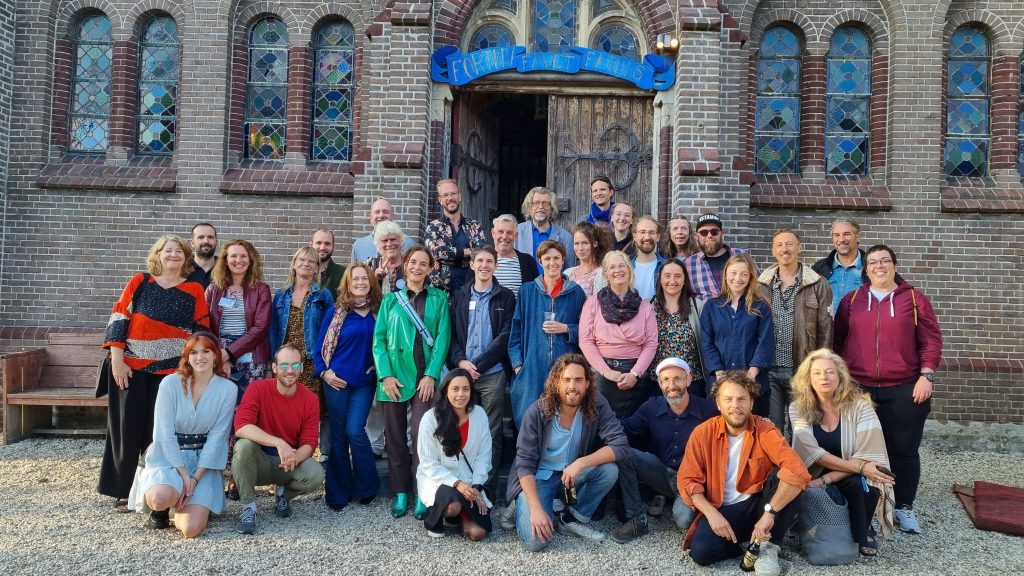
At the end of the week we had a closing circle, in which every participant shared their insights and experiences. It was heart-warming to learn how the workshop had been an invaluable experience for everyone involved. It is a unique situation to be able to devote a full week with experts for an open and free debate about set and setting. And we sincerely hope that the participants will carry this positive afterglow forward in their own work and practice!
Reported by Patricia Pisters & Michiel van Elk (Board members OPEN Foundation)

